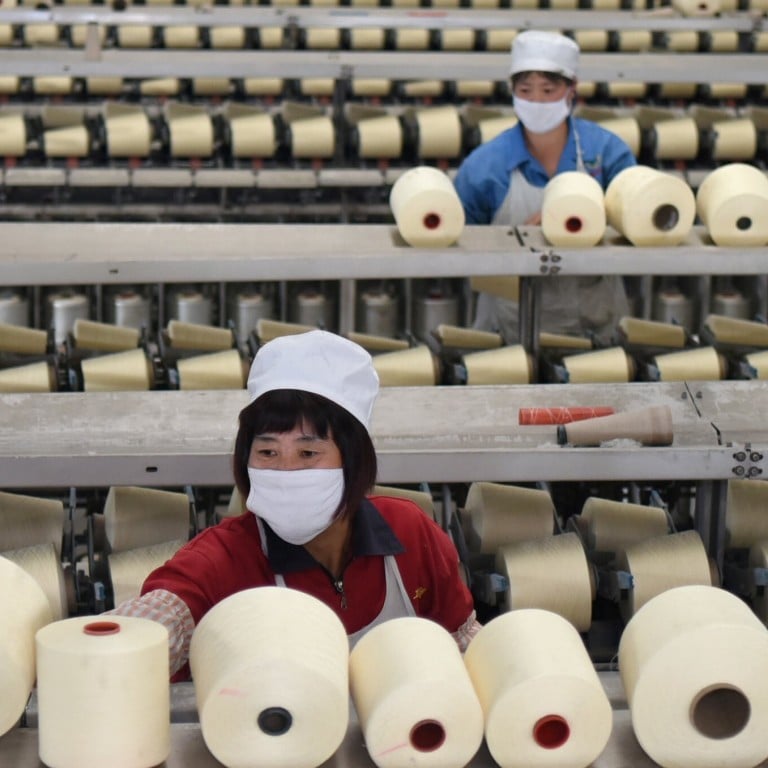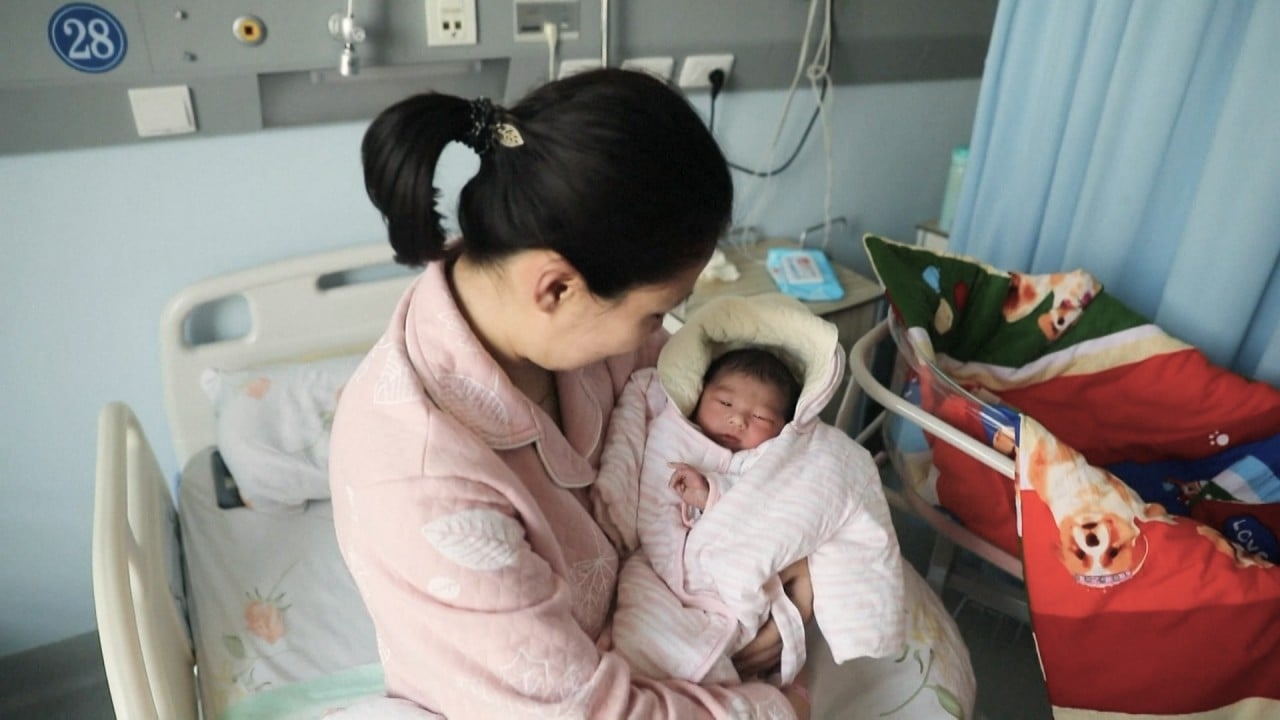
China population: Beijing mulls eliminating gender gap in retirement age as demographic crisis looms
- China is considering narrowing the gender gap in retirement age, which is 60 for men and 55 for women
- But closing it will require a realignment of state pensions and childcare provisions, experts warn
The retirement age for women in China is lower than that of men, reflecting work and child care burdens from decades ago. As China’s population ages and its work force declines, the retirement age gap is coming under scrutiny, with changes possible in the near future. This is the first of a series of stories on women’s issues in China and Asia to coincide with International Women’s Day.
Amid growing concern about a demographic crisis, China is moving closer to narrowing the age of retirement between men and women, a gap that has been blamed for stoking gender inequality and wasting human resources.
But to do so, experts say China will also need to overhaul its state pension system and childcare provisions.
For more than four decades, China’s retirement age has remained unchanged at 60 for men and 55 for women, though it can be earlier for women in blue-collar jobs.
It is mandatory for Chinese stop working once they hit their age and they are often unable to re-enter the job market, even if they want to work.
But as the world’s second largest economy moves away from mass manufacturing to focus on advanced technology production and services, the policy is increasingly anachronistic, experts said.
“Back when China’s development was driven by manufacturing and labour-intensive work, [because of] the physical difference between men and women, it made sense for women to retire early,” said Eva Zhang, a research statistician at the Peterson Institute for International Economics in Washington.
“Now, [growth is] driven by skilled labour and the service sector … and that’s also where the jobs are, so it doesn’t make sense any more for men and women to retire at different ages. That’s a waste of human resources, because the gender gap in education has closed since the early 2000s.”
Chinese women are now more inclined to pursue higher education than in the past, with the number of women continuing beyond high school in 2019 at 1.45 million, or 50.6 per cent of all women. The percentage at university was 51.7 and in adult higher education 58.7, according to data from the National Bureau of Statistics.
When a woman is being hired, the company assumes she is going to be the one who takes care of the family and children, that is a source of job discrimination
Despite being more educated than ever, Chinese women still face hurdles moving up the career ladder. With an earlier retirement age and expectations they will have children, women are often viewed less favourably by employers compared to men.
“When a woman is being hired, the company assumes she is going to be the one who takes care of the family and children, that is a source of job discrimination,” Zhang said.
The Chinese government first floated the idea of raising the both retirement ages about eight years ago. However, the discussion sparked public anger as many people believed it would mean less in retirement benefits compared to their pension contributions and more seniors would hold onto jobs.
And with women working beyond the statutory retirement age, there would be nobody to take care of grandchildren, critics said.

01:31
China faces demographic challenge as birth rate drops despite government efforts
“The official retirement age for women was set back in the 50s, taking into consideration the hard work [they] had to go through with childbirth and raising a family. But this arrangement was based on gender inequality,” said Professor Peng Xizhe, from the Centre for Population and Development Studies at Fudan University in Shanghai.
To lift the retirement age, Peng said policymakers need to reconsider retirement benefits – a major concern among the Chinese public – and allowing retirees to re-enter the workforce if they are able to.
The outlook for China’s state pension fund is that the risk is relatively big. Many people are concerned with this
“The outlook for China’s state pension fund is that the risk is relatively big. Many people are concerned with this,” said Peng. “[Allowing retirees to work] could help balance the [financial] shortfall of the state pension fund, reducing discrimination against the senior workforce.
“In the long term, I think men and women should retire at the same age. But I don’t think it should be mandatory. Men and women should be able to retire based on their personal circumstances and it should be a decision between employees and their employers.”
China’s retirement ages are lower than in many other countries. In Japan, for instance, it is 65 for both men and women. Former prime minister Shinzo Abe’s government said it was considering raising it to 70 or even 75 given the sharp drop in the nation’s population.
The Chinese government has signalled it would like to lift the retirement age because of the declining labour force, longer life expectancy, an ageing population and a waste of human resources.
“At present, our ministry is working with relevant departments to study specific reform plans,” You Jun, vice-minister of Human Resources and Social Affairs, said in a news conference last month, adding the government would draw on international practices and experience while taking into account the country’s own circumstances and traditions.
“Delaying the retirement age involves the vital interests of most employees. In the process of research and formulation of the plan, we will listen to opinions from all walks of life, fully account for their opinions and suggestions, and build social consensus.”
But women are likely to continue taking the lead for caring for children and grandchildren, unless there are additional provisions for childcare and support from their partners.
Chinese women are entitled to between one and three months of maternity leave, while in some provinces like Hainan and Henan it is as high as 190 days. However, there is no national legal requirement for paternity leave.
The shrinking workforce isn’t going to be solved by raising the retirement age
“The shrinking workforce isn’t going to be solved by raising the retirement age,” said Zhang. “The issue is that if there are more babies, families are concerned with the cost. The childcare burden on young couples is another problem.
“If grandma is going to work until 60, 65, then who is going to help to take care of the children for the young couple? So maybe more public childcare support is one solution.
“A lot of the time when women take a temporary break from the labour market for childbearing responsibility, it means huge damage to their careers.
“Sometimes they can return to their previous positions, sometimes they can never get back to the same competitive level.”











